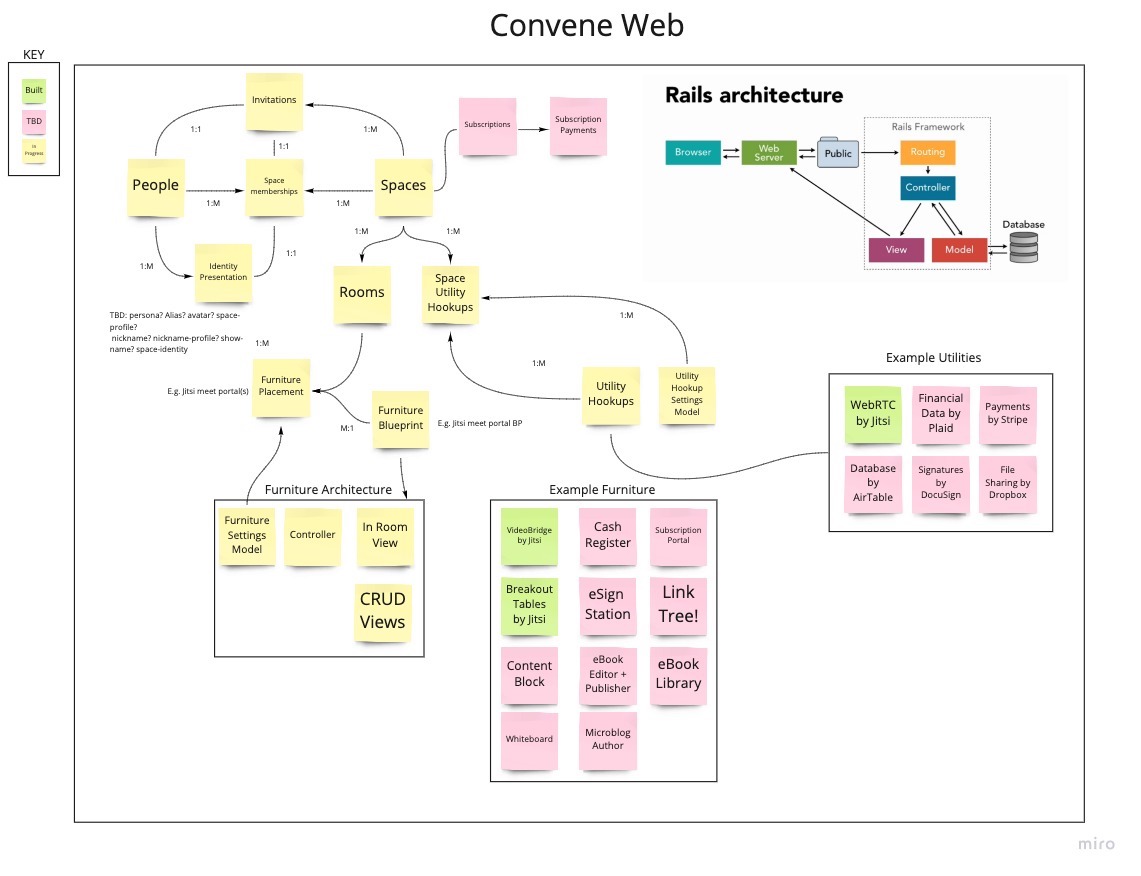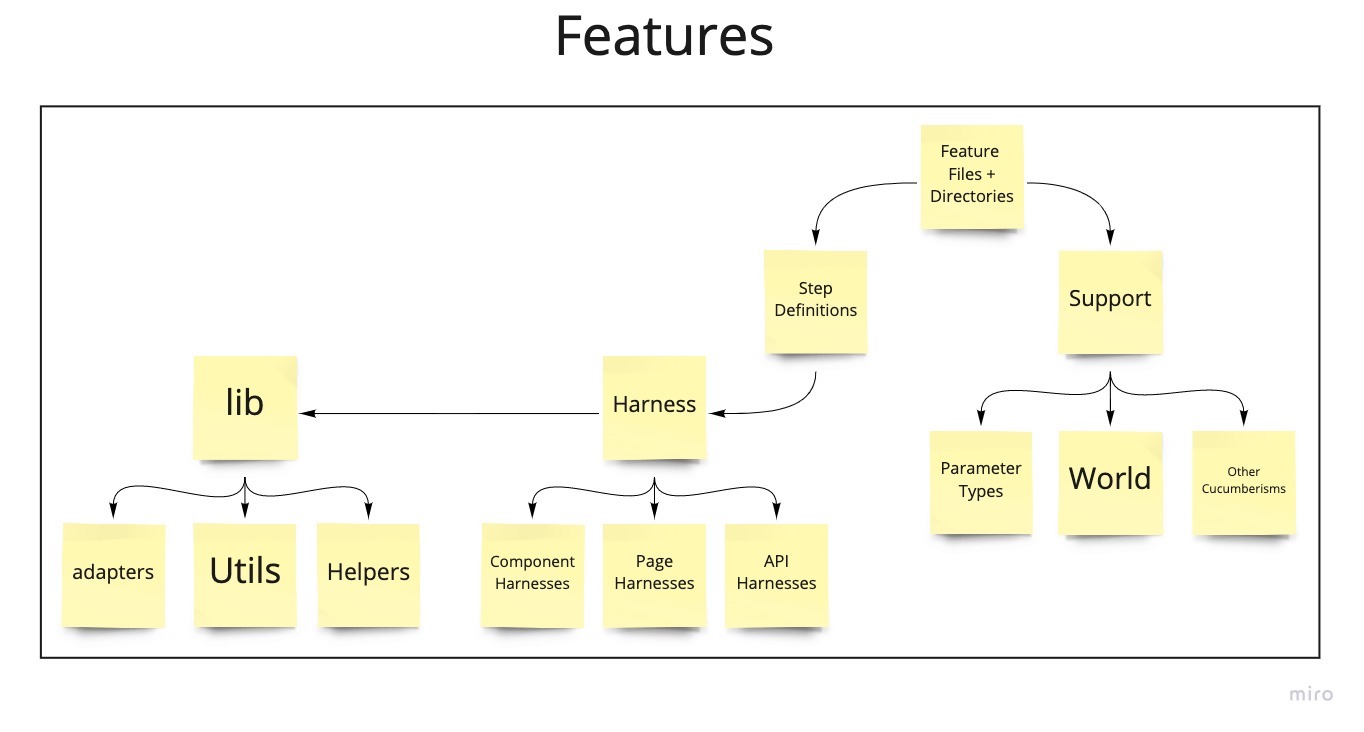Convene secure, affordable, always-available digital Spaces where anyone can (play || work || grow || be). 🎲 👩💻 🌱 🛋️
- Overview
- Using Convene
- Contributing to Convene
- System Overview
- Configuring Your Development Machine
- Testing Convene
- About The Zinc Collective
Convene serves as the Means of Connection. Create a Space to co-conspire, relax, learn, play, work, swap recipes, read books, or really anything!
Convene provides the underlying infrastructure for a Neighborhood of Spaces. Operators help Clients design their Spaces and keep the Neighborhood up and running. Maintainers and Contributors enhance Convene with:
- Furniture, fun toys and powerful tools
- Utilities, integrating external services like Stripe, Calendly, Jitsi, and more.
The Internet is for People, so why not put People in charge of their digital spaces?
To put it succinctly, Convene provides:
- Digital infrastructure, toys, and tooling
- For small groups and individuals
- Co-creating a better future.
We have two milestones in flight at any one time:
- Product Milestone: 1.0 Andromeda
- Engineering Milestone: Cleanup!
[Zinc] maintains a Convene Neighborhood at https://convene.zinc.coop. For people who want to run their own Neighborhood of Spaces, consider purchasing a Convene Operator License.
Individuals and non-commercial organizations may run their own Convene deployment however they see fit without requiring payment.
However, if the person or organization engages in commerce, defined as taking currency in exchange for goods or services, then the organization must purchase a license to use Convene.
Pricing is determined on a case-by-case basis. Please reach out to
hello@zinc.coop for licensing information.
Organizations and individuals who are comfortable relying on free Community Support are encouraged to start a discussion. Maintainers respond as they are available.
Paid support is available for $135 USD per hour1.
We're always excited for new contributors! Read more in our guide to contributing, located in CONTRIBUTING.md
- Overview
- Using Convene
- Contributing to Convene
- System Overview
- Configuring Your Development Machine
- Testing Convene
- About The Zinc Collective
The central piece of Convene is a Ruby on Rails server that is responsible for:
- serving the Convene UI
- managing users, spaces, rooms, permissions, etc
This high level view of our design shows the personas and segments we are focusing on initially with Convene. It also includes our current vision of the types of spaces, rooms and participants it serves and clarifies the design of privacy permissions.
The Convene UI is based on Rails standard templating system, with heavy use of:
- Stimulus JS
- the entry point for our JavaScript is in
app/javascript/controllers/index.js, which loads allapp/javascript/*_controllers.jsfiles
- the entry point for our JavaScript is in
- Tailwind CSS to help speed up making good-looking UIs
Jitsi is Convene's video call infrastructure. The video_room_controller.js is the entry point where we load a Jitsi video call iframe into Convene's UI.
If you want to run Jitsi locally, see the configuration provided in
infrastructure/jitsi-meet-local.
Last updated: April 2021
Original on Miro: https://miro.com/app/board/o9J_lLrbz1g=/
See Developer setup and documentation.
To run pry or byebug, run bin/connect web.
Set SMTP_* environment variables to configure Action Mailer.
To preview mailers, visit http://localhost:3000/rails/mailers/
The Convene interface is tested in two ways:
- Open-box unit and integration tests, which are defined in the
specfolder - Closed-box story tests, which are defined in the top level
featuresfolder
Many enhancements and fixes can be made without updating the story tests, while almost all changes will want updated unit or integration tests.
For story tests, we use Cucumber to encourage us to write tests as human-friendly documentation.
For unit and integration tests, we use RSpec. RSpec is a nice complement to Cucumber, in that it allows us to directly integrate with the underlying Ruby and Rails code without writing human or computer interfaces that require inter-process communication.
This helps us write small, focused tests that deal with 1~3 Ruby classes instead of having to spin up a working instance of the entire application.
Tests that need database access should require "rails_helper", and tests that
can be executed without a database should require "spec_helper".
Last updated: April 2021
Original on Miro: https://miro.com/app/board/o9J_lLrbz1g=/
Convene is maintained by a dedicated community of volunteer Contributors and Maintainers known as the Zinc Collective, a digital product and services cooperative.
We have a Pledge and Code of Conduct. And anyone can become a contributor and/or maintainer.
Our paid support rate is pegged to 3x the San Francisco Living Wage for a couple with a single worker raising three children.
This rate is negotiable for organizations that offer Zinc a patronage account or corresponding equity stake.
Paid support clients may also request a deferred payment program, with terms to be determined on a case-by-case basis.

